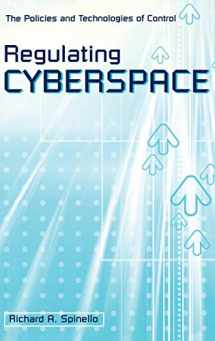
Regulating Cyberspace: The Policies and Technologies of Control
Book details
Summary
Description
This visionary book presents an interdisciplinary and cogent approach to the issue of Internet governance and control. By examining five critical areas in which the tension between freedom and control is most palpable―fair competition and open access, free expression, intellectual property, privacy rights, and security―Spinello guides the reader on a tour of the emerging body of law and public policy that has attempted to control the anarchy of cyberspace. In so doing, he defends the credo of Internet self-regulation, asserting that the same powerful and flexible architectures that created the Internet as we know it today can be relied upon to aid the private sector in arriving at a workable, decentralized regulatory regime. Except in certain circumstances that require government involvement, self-regulation is not only viable but is a highly preferred alternative to the forced uniformity that centralized structures tend to impose.
Beginning with an exploration of the Internet's most important values, including universality, free expression, and open access, as well as its promise as a democratizing force, Spinello considers how we can most effectively preserve those values and fulfill that promise while curtailing the social harms that vex Internet users. How do we arrive at the right mixture of technology and policy so that the Internet does not lose its promise as a liberating technology? In examining this question, Spinello evaluates such architectures of control as filters and rights management protocols, which attempt to keep out unwanted information and protect intellectual property, respectively. He explores how these and other technologies can be designed and used responsibly so that online social order can be sustained with a minimal amount of government intervention.


We would LOVE it if you could help us and other readers by reviewing the book
Book review



